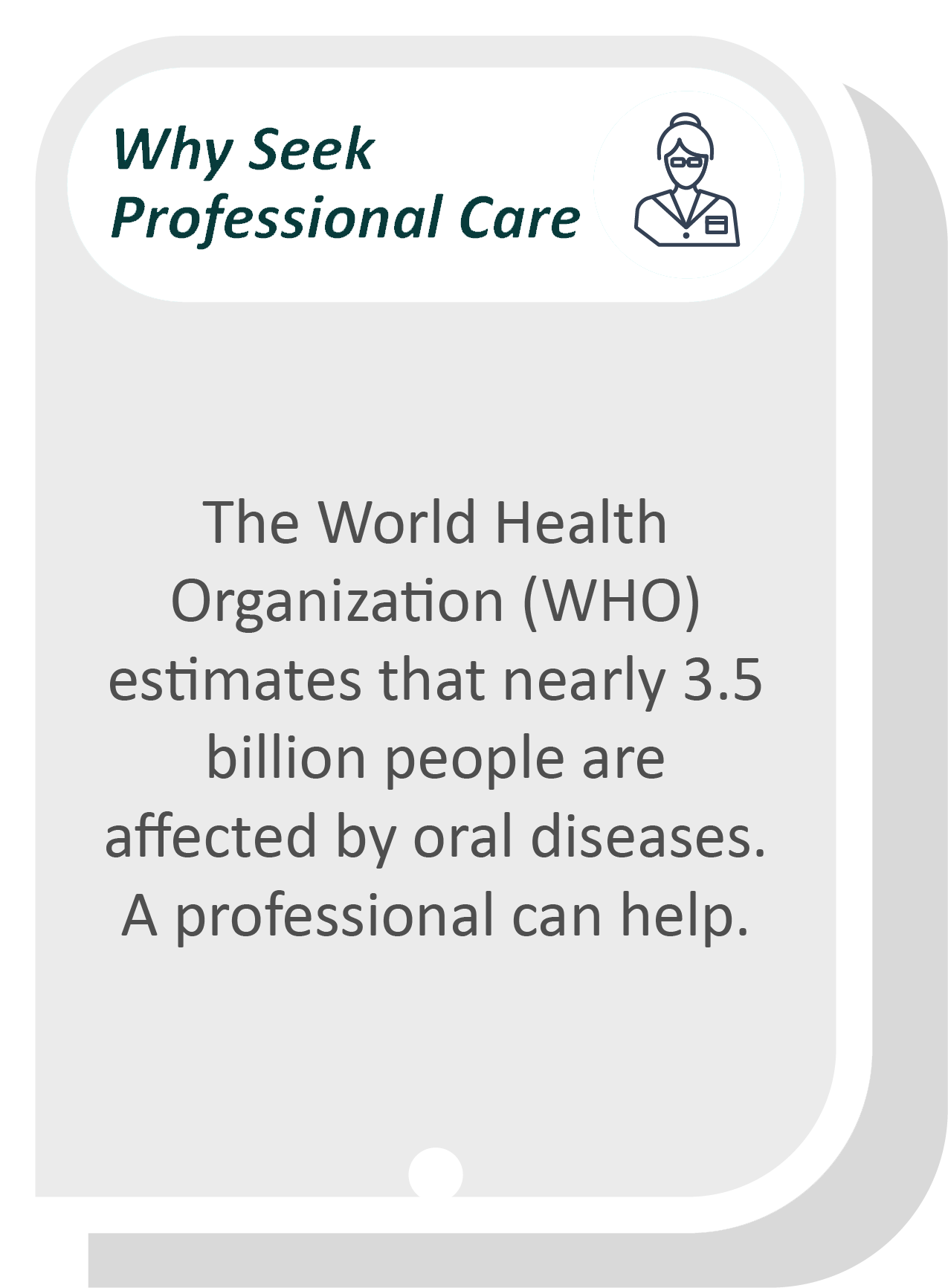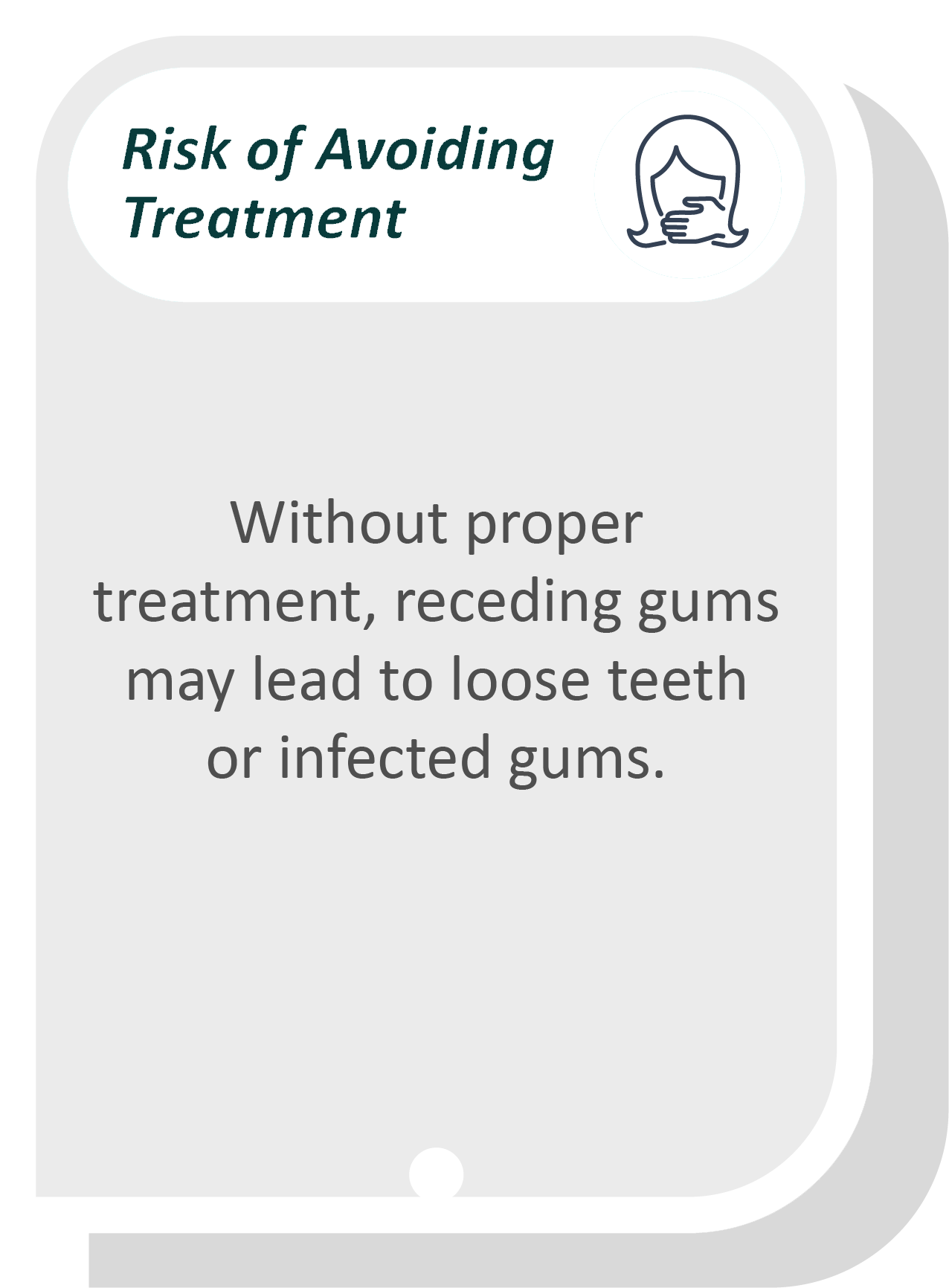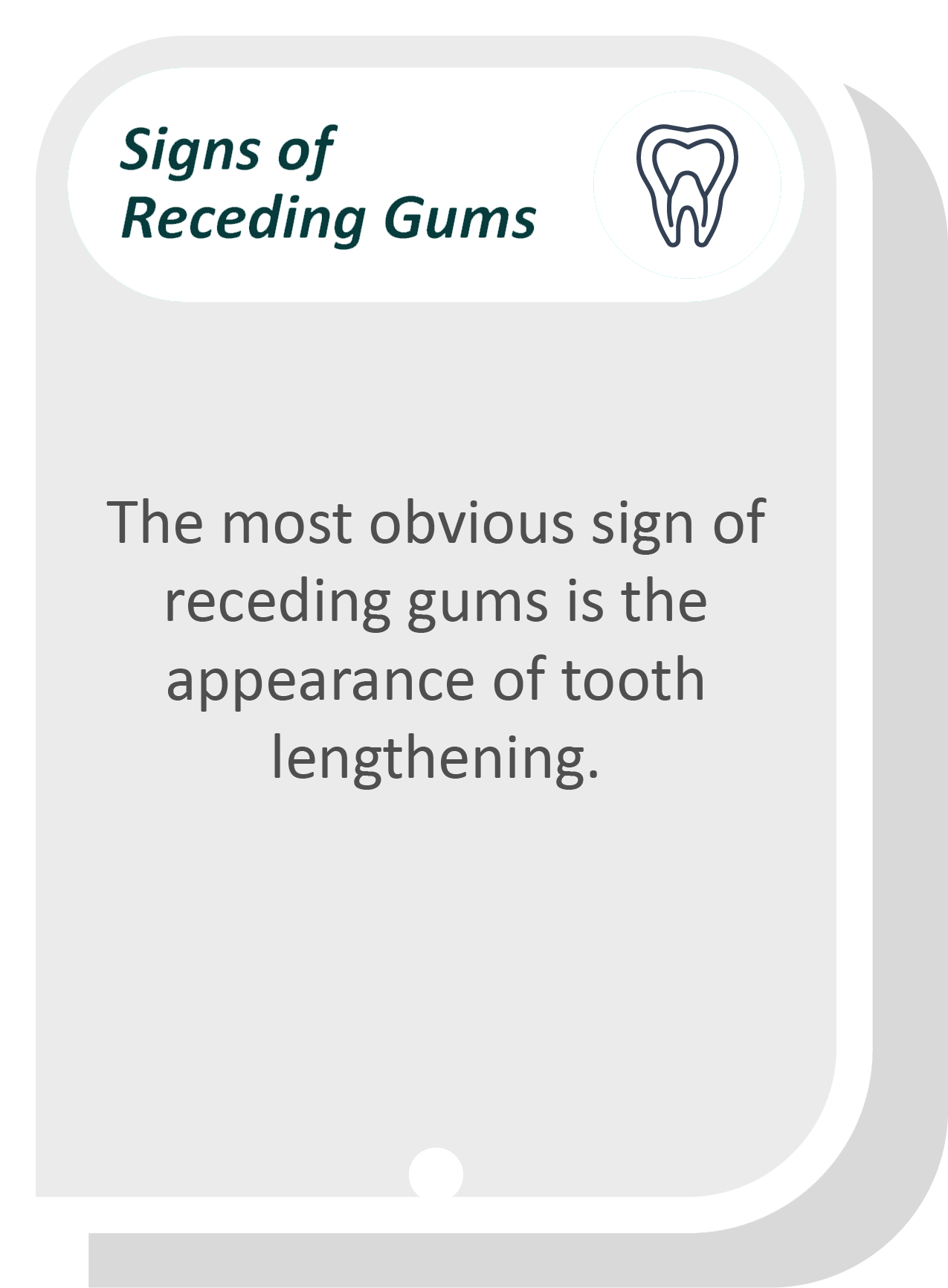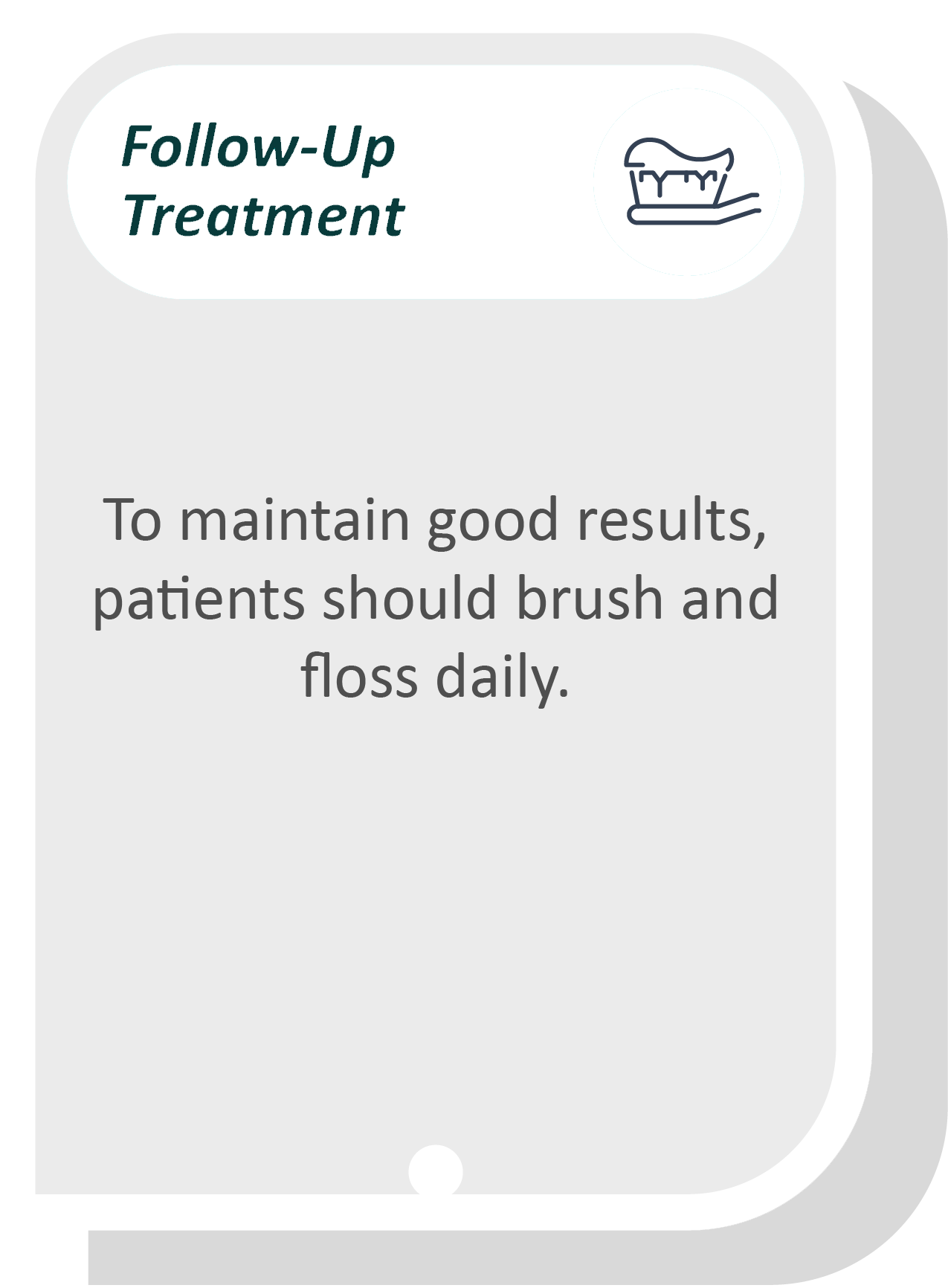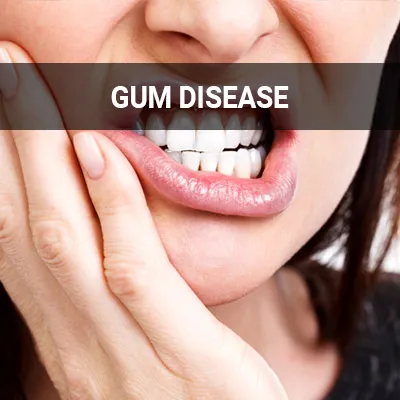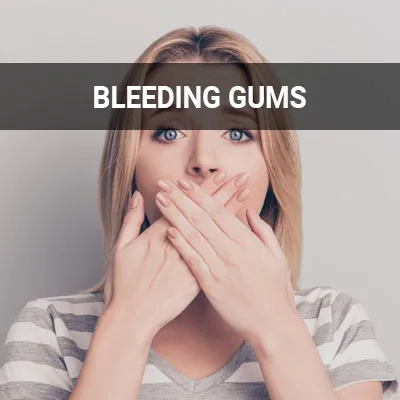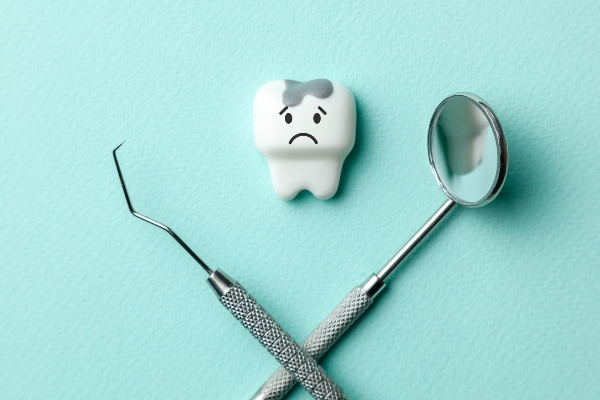I Think My Gums Are Receding Revere, MA
For many patients, solutions for gum recession can enhance both their appearance and overall dental health. Gum recession can happen even to people with good oral hygiene. There are many options available to treat receding gums.
Solutions for gum recession are available at Trubright Dental in Revere and the surrounding area. Call us today at (781) 241-4161 to schedule an appointment and learn more.
Signs of Gum Recession
For some patients, gum recession may set in subtly and go unnoticed for some time. The aesthetic changes following gum recession are the most apparent. These include visibly shrinking gums and exposed tooth roots. However, other common symptoms include:
- Bad breath
- Bleeding after brushing or flossing
- Loose teeth
- Pain at the gum line
- Red, swollen gums
Patients may experience concerns about their appearance during this time, as well as a fear of losing teeth. Additionally, teeth may be particularly sensitive to cold and heat (due to the exposed tooth roots).
“The aesthetic changes that follow gum recession are the most apparent.”
Causes of Gum Recession
Although gum recession is often a sign of poor oral hygiene, it can occur in people with good oral hygiene as well. Hereditary traits in a person's oral health can affect the way the teeth position themselves and the thickness of the gums. These traits cause an individual to be more prone to recession. Gum recession in healthy individuals can also be caused by excessive or over-brushing, piercings, and damage from previous dental treatments.
Poor oral health is more often the cause of receding gums. Individuals with thin gum tissue may be prone to inflammation and infection due to increased plaque buildup. Oral health conditions, such as gingivitis and periodontal disease, are also common causes of gum disease. Receding gums are an apparent physical symptom in many oral conditions.
“Poor oral health is more often the cause of receding gums.”
Treating Gum Recession
Some cases of gum recession are mild enough that they do not need treatment. Still, several treatment options are available for those who need it. These include composite restoration; desensitizing agents, varnishes, and dentin bonding agents; orthodontics; pink porcelain or composite; removable gum veneers; and surgery. Composite restorations are natural-looking, tooth-colored composite resins that cover the surface of the tooth root. They may be used to close any black gaps between the teeth.
Desensitizing agents, varnishes, and dentin bonding agents may help reduce the exposed tooth root's sensitivity. By lessening the nerve symptoms, desensitizing agents may ease the brushing of sensitive teeth and promote oral hygiene. Orthodontics (or braces) are more of a long-term treatment that moves a tooth slowly over time. This repositioning can help correct the margin of the gum.
Pink porcelain or composite that matches the color of the gums can be applied to the "gaps" to reduce the appearance of receded gums. Similarly, removable gum veneers, which usually consist of acrylic or silicone, can be applied in the "gaps." Finally, more severe cases of gum recession may necessitate surgery, usually a gum graft.
“Some cases of gum recession are mild enough not to need treatment.”
Check out what others are saying about our dental services on Yelp: I Think My Gums Are Receding in Revere, MA
Preventing Gum Recession
Proper dental care is the number one way to prevent gum recession. This involves maintaining a routine where patients brush their teeth with a soft-bristled toothbrush at least twice daily and floss at least once daily. Patients should also see a dentist at least twice a year. At-risk patients may require more frequent visits, and a dentist that notices signs of gum recession may want to keep a vigilant watch that it does not worsen.
Patients may want to consider asking their dentist how to properly brush their teeth to ensure that they are not brushing too aggressively. Additionally, healthy lifestyle choices like eating a well-balanced diet and not smoking can lessen one's chances of gum recession dramatically.
It can be dangerous to leave gum recession untreated. Exposed tooth roots may decay very quickly, necessitating various expensive, painful procedures. Teeth may get more sensitive, and the appearance of the smile may become imbalanced. It is also possible that what patients are experiencing is not gum recession but undetected, worsening gum disease.
“…healthy lifestyle choices like eating a well-balanced diet and not smoking can lessen one’s chances of gum recession dramatically.”
Questions Answered on This Page
Q. What are the symptoms of gum recession?
Q. What can I do about receding gums?
Q. How can I prevent gum recession?
Q. What are the causes of gum recession?
Q. Who is at risk of gum recession?
People Also Ask
Q. How do lifestyle choices affect dental health?
Q. Am I at high risk for developing oral cancer?
Risk Factors
Individuals with healthy pink firm gums should not worry about gum recession. However, if symptoms and signs appear, a thorough oral evaluation is recommended. It is also advisable to know the risk factors to better evaluate one's likelihood of acquiring gum recession.
Medical News Today lists the four most common risk factors of receding gums: age, tobacco, diabetes, and genetics. A study found that 88% of individuals 65 years and older have gum recession and 50 percent of people 18 to 64 years of age have one or more sites with recession. People who smoke, struggle with misalignment issues, or have diabetes, have a higher chance of acquiring gum recession.
“People who smoke, struggle with misalignment issues, or have diabetes, have a higher chance of acquiring gum recession.”
Frequently Asked Questions
Q. Can I improve gum recession at home?
A. Receded gums cannot grow back, so the condition is irreversible. However, practicing exceptional oral hygiene can prevent the progression of recession. Various treatment options are also available to alter the appearance of the gumline.
Q. How long can gum recession go untreated?
A. It is best to treat gum recession as soon as early signs appear or a dentist makes an evaluation. Going without treatment can cause plaque buildup, infection, and gum disease. These conditions, when severe, will likely lead to tooth loss or jaw damage.
Q. Are there natural remedies to keep the gums healthy?
A. All patients should exercise adequate oral hygiene habits, such as brushing, flossing, rinsing, and routinely visiting the dentist. Healthline suggests a variety of home remedies for caring for the gums at home. This should be done alongside the preventative measures listed above.
Q. What kind of toothbrush is recommended to avoid harsh brushing?
A. We recommend using a soft-bristled toothbrush as medium or hard toothbrushes can wear and tear surface enamel and irritate the gums, causing recession to occur. The ADA recommends soft-bristle toothbrushes with angled or multi-layer bristles and electric toothbrushes.
Q. Is gum recession linked to any other health conditions?
A. Gum recession is linked to oral health conditions such as gingivitis, gum disease, and periodontal disease. It is also linked to general health conditions such as cardiovascular disease and diabetes. There are certain health conditions that make one more prone to receding gums and vice versa. It is important to mention all health conditions to both your doctor and dentist.
Gum Disease Terminology
Call Us Today
Gum recession can be stressful to experience. We at Trubright Dental may be able to help. Call us today at 781-241-4161 to learn more and schedule an appointment.
Helpful Related Links
- American Dental Association (ADA). Glossary of Dental Clinical Terms. 2025
- American Academy of Cosmetic Dentistry® (AACD). Home Page. 2025
- WebMD. WebMD’s Oral Care Guide. 2025
About our business, license, and website security
- Trubright Dental was established in 2022.
- We accept the following payment methods: American Express, Cash, Check, Discover, MasterCard, and Visa
- We serve patients from the following counties: Suffolk County, Essex County and Middlesex County
- We serve patients from the following cities: Revere, Chelsea, Winthrop, Everett, Malden, Saugus, and Lynn
- MA (License #DN1857078). View License Information and Specifics
- National Provider Identifier Database (1245534221). View NPI Registry Information
- Norton Safe Web. View Details
- Trend Micro Site Safety Center. View Details
Back to top of I Think My Gums Are Receding

